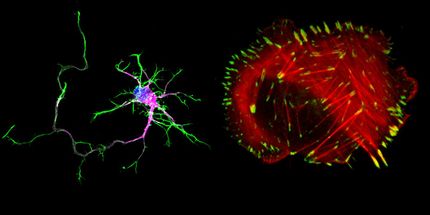Dako enters collaboration with Genentech on diagnostic tests for patients with stomach cancer
Dako has signed an agreement with Genentech, Inc. to collaborate on the regulatory submissions of Dako's HercepTest(TM) and HER2 FISH pharmDx(TM) as companion diagnostics for Herceptin® (trastuzumab) in patients with advanced HER2-positive stomach (gastric) cancer.
The collaboration involves the use of Dako's extensive experience in developing cancer diagnostic tests to identify cancer patients who may receive greater benefits from a certain therapy.
Under the terms of the agreement, Dako and Genentech will collaborate on regulatory submissions for HercepTest(TM) and HER2 FISH pharmDx(TM) in the U.S. market to identify patients with stomach cancer who may be eligible for treatment with Herceptin if Herceptin is approved for use against that disease.
Based on the Herceptin ToGA Phase III study results, which were presented at the American Society for Clinical Oncology Annual Meeting in Orlando, Florida, Genentech may seek regulatory approvals in the U.S. for the use of Herceptin in advanced HER2-positive stomach cancer.
"Herceptin and Dako's companion diagnostics HercepTest(TM) and HER2 FISH pharmDx(TM) have brought significant benefit to women with HER2-positive breast cancer. We are very excited to work with Genentech to extend these successful companion diagnostics to patients with stomach cancer," says Lars Holmkvist, CEO and President of the Dako Group.
The collaboration is in line with Dako's ongoing strategy to combine its strengths with biotechnology and pharmaceutical companies to develop the offering of Dako's companion diagnostic assays.
Topics
Organizations
Other news from the department business & finance

Get the life science industry in your inbox
By submitting this form you agree that LUMITOS AG will send you the newsletter(s) selected above by email. Your data will not be passed on to third parties. Your data will be stored and processed in accordance with our data protection regulations. LUMITOS may contact you by email for the purpose of advertising or market and opinion surveys. You can revoke your consent at any time without giving reasons to LUMITOS AG, Ernst-Augustin-Str. 2, 12489 Berlin, Germany or by e-mail at revoke@lumitos.com with effect for the future. In addition, each email contains a link to unsubscribe from the corresponding newsletter.
























































